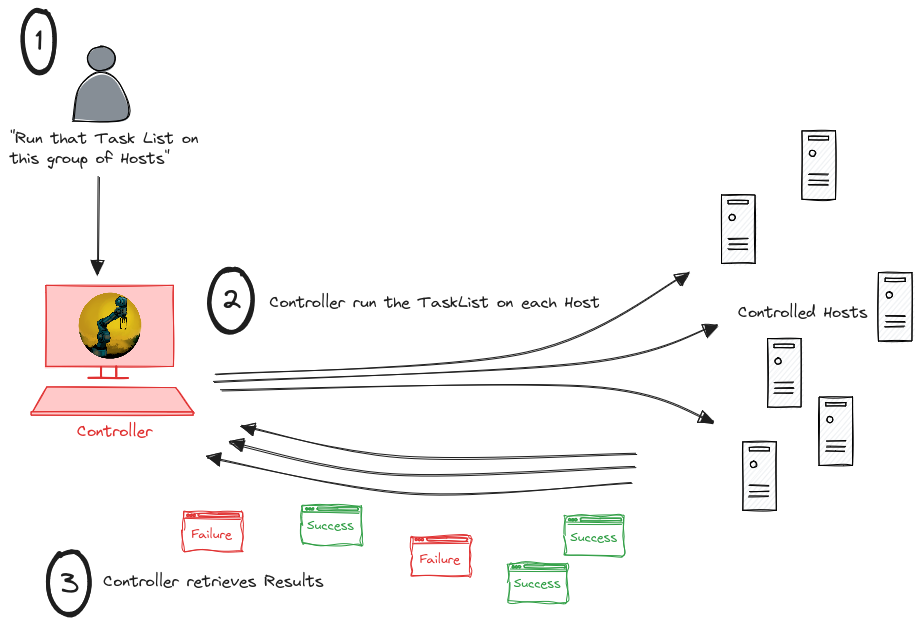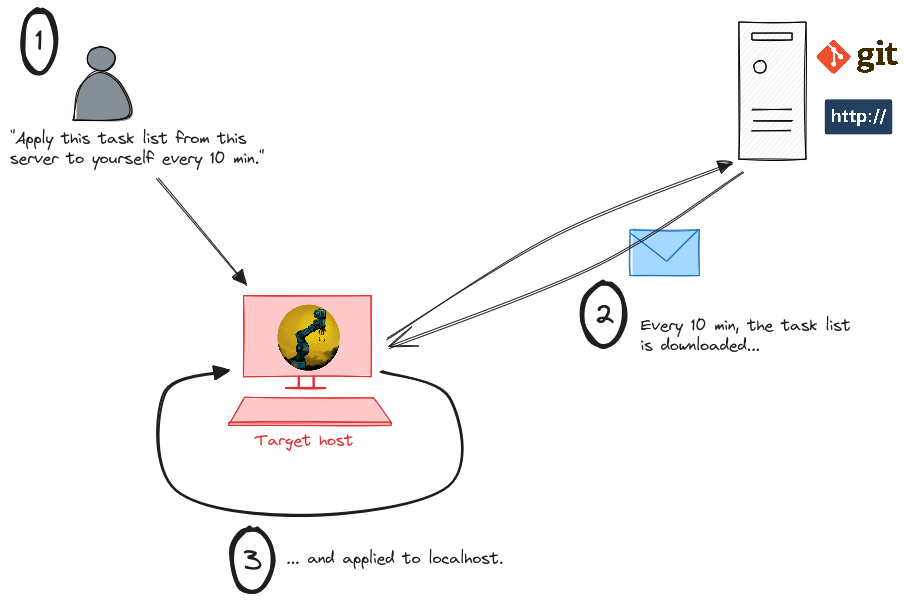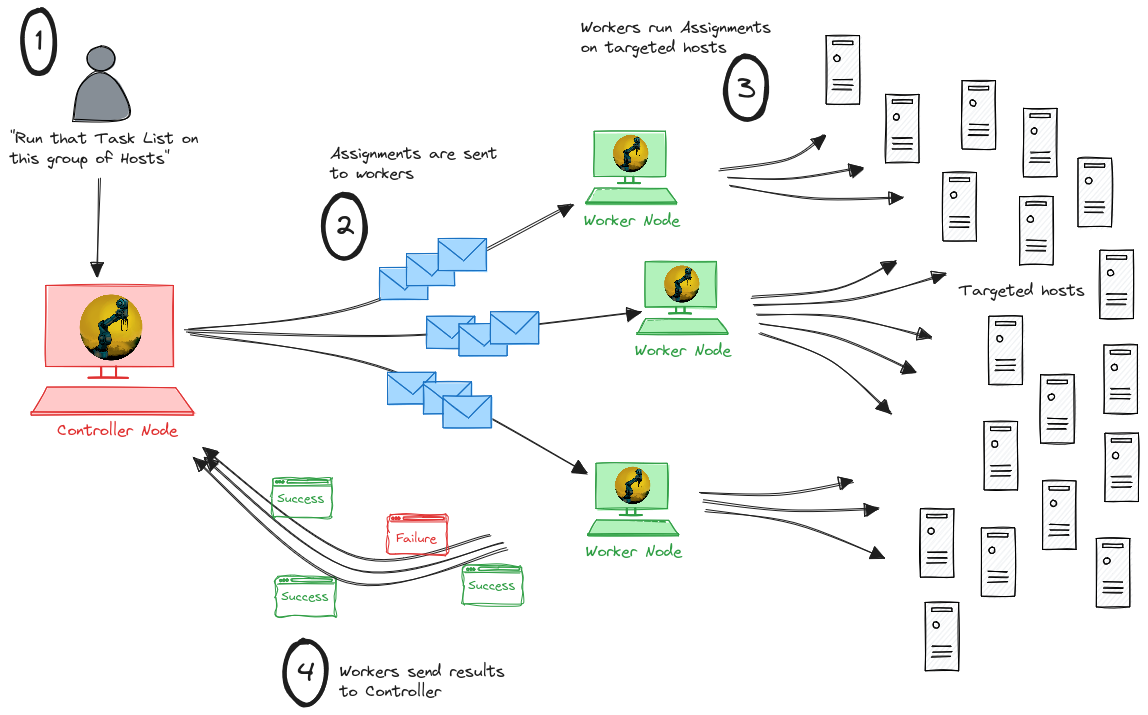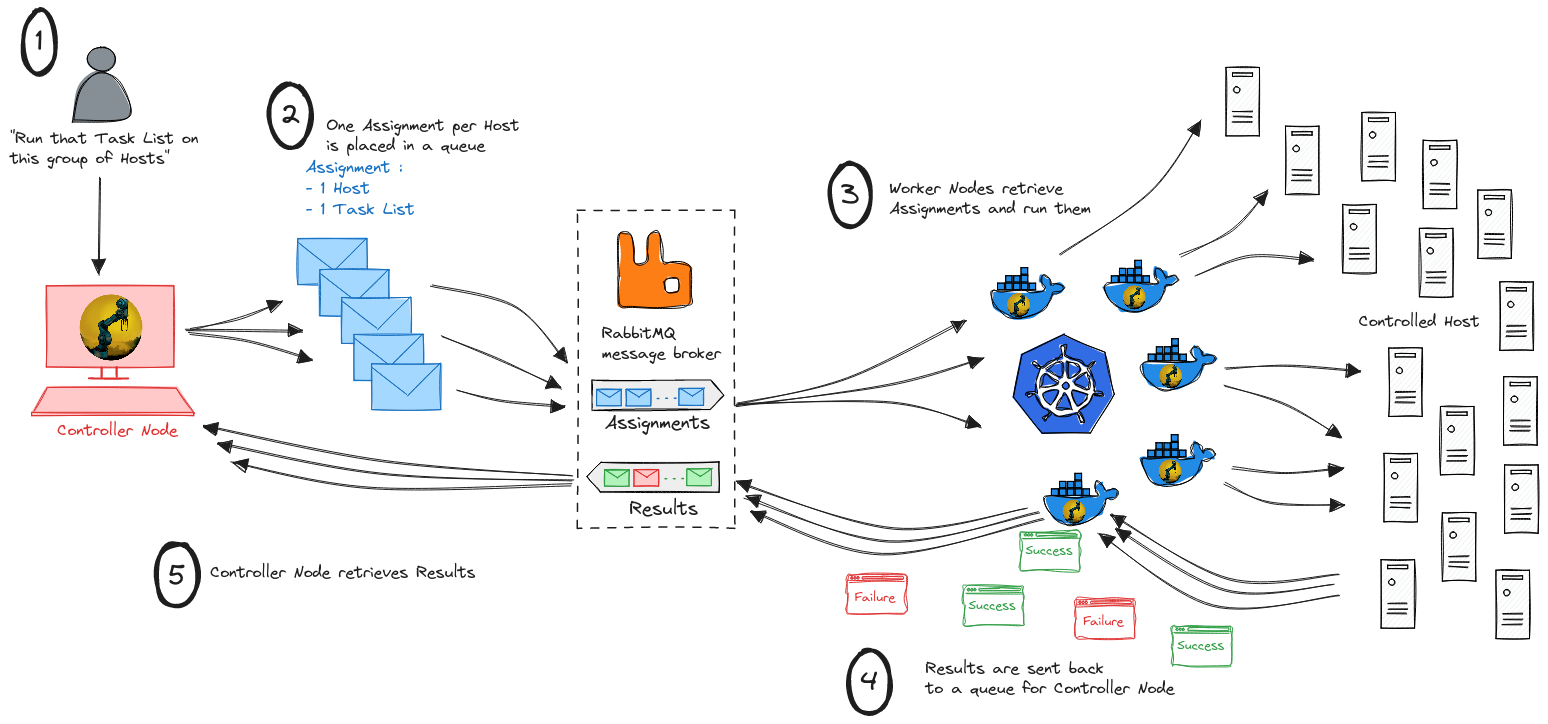# Duxcore : embed an ansible-like automation engine right in your Rust code
# The goal
Instead of having one big configuration management tool trying to handle all scenarios, we prefer to build one flexible automation *engine* (this crate) and make it as easy as possible to embed in a codebase, ready to be adapted to one's specific need.
# Documentation
A [*book*](https://www.dux-automate.org/book/) has been opened about the Dux project. Especially, modules list and documentation can be found [here](https://www.dux-automate.org/book/modules.html).
# Basic example
Import the crate
```shell
cargo add duxcore
```
Now let's perform the usual example : **setup a webserver** (but, this time, right from your Rust code !)
```rust
use duxcore::prelude::*;
fn main() {
// First we need to define what the expected state of the target host is.
let my_tasklist = r#"---
- name: Let's install a web server !
steps:
- name: First, we test the connectivity and authentication with the host.
ping:
- name: Then we can install the package...
with_sudo: true
apt:
package: '{{ package_name }}'
state: present
- name: ... and start & enable the service.
with_sudo: true
service:
name: '{{ service_name }}'
state: started
enabled: true
- name: What date is it on this host by the way ?
register: host_date
command:
content: date +%Y-%m-%d" "%Hh%M
- name: Let's see...
debug:
msg: 'date: {{ host_date.output }}'
"#;
// Then we create a 'Job'.
let mut my_job = Job::new();
// We set who the target host of this Job is, and how to connect to it.
my_job
.set_address("10.20.0.203")
.set_connection(HostConnectionInfo::ssh2_with_key_file("dux", "./controller_key")).unwrap();
// We give it some context and the task list.
my_job
.add_var("package_name", "apache2")
.add_var("service_name", "apache2")
.set_tasklist_from_str(my_tasklist, TaskListFileType::Yaml).unwrap()
;
// We can finally apply the task list to this host.
my_job.apply();
// Let's see the result.
println!("{}", my_job.display_pretty());
}
```
Output
```json
{
"host": "10.20.0.203",
"timestamp_start": "2024-11-15T23:14:09.114229853+00:00",
"timestamp_end": "2024-11-15T23:14:09.864756326+00:00",
"final_status": "ApplySuccesful",
"tasks": [
{
"name": "Let's install a web server !",
"steps": [
{
"name": "First, we test the connectivity and authentication with the host.",
"expected_state": {
"ping": {}
},
"status": "ApplySuccessful"
},
{
"name": "Then we can install the package...",
"expected_state": {
"apt": {
"state": "present",
"package": "apache2"
}
},
"status": "ApplySuccessful"
},
{
"name": "... and start & enable the service.",
"expected_state": {
"service": {
"name": "apache2",
"state": "started",
"enabled": true
}
},
"status": "ApplySuccessful"
},
{
"name": "What date is it on this host by the way ?",
"expected_state": {
"command": {
"content": "date +%Y-%m-%d\" \"%Hh%M"
}
},
"status": "ApplySuccessful"
},
{
"name": "Let's see...",
"expected_state": {
"debug": {
"msg": "date: 2024-11-16 00h14\n"
}
},
"status": "ApplySuccessful"
}
]
}
]
}
```
This is the basic workflow of Dux. The *Job* type, around which the whole automation revolves, is serializable/deserializable. It is then up to you to parallelize, distribute the work, display the results in some web interface or send the workload to workers via a message broker... Whatever suits you best ! To handle multiple hosts at once, use a [JobList](https://docs.rs/duxcore/latest/duxcore/job/joblist/struct.JobList.html) instead.
# More examples
More complex examples of how the Dux crate can be used are being built as separate projects. These are **proofs of concept** and can be used as a starting point for your own implementation. You can also start from scratch.
## Standard implementation
> One binary doing everything
Dux standard project : [dux-standard](https://gitlab.com/dux-tool/dux-standard)
## Agent implementation
> A Dux agent running as a background service, regularly fetching a remote tasklist (http/https, git...) and applying it to itself
Dux agent project : [dux-agent](https://gitlab.com/dux-tool/dux-agent)
## Distributed implementation
> Workload split between a controller which generates Jobs and workers which actually run them on targetted hosts
Dux distributed controller project : [dux-distributed-controller](https://gitlab.com/dux-tool/dux-distributed-controller)
Dux distributed worker project : [dux-distributed-worker](https://gitlab.com/dux-tool/dux-distributed-worker)
## Scalable implementation
> Workload split between a controller and workers nodes, with a message broker in the middle to allow scaling up and down the number of workers
Dux scalable controller project : [dux-scalable-controller](https://gitlab.com/dux-tool/dux-scalable-controller)
Dux scalable worker project : [dux-scalable-worker](https://gitlab.com/dux-tool/dux-scalable-worker)
# Contribution
Want some help to use this crate for your own situation ? Open to suggestions, feedback, requests and any contribution !
Will gladly exchange ideas and help you build your own implementation right [there](https://discord.com/invite/2gxAW7uzsx) !





